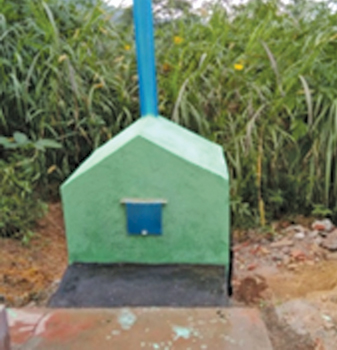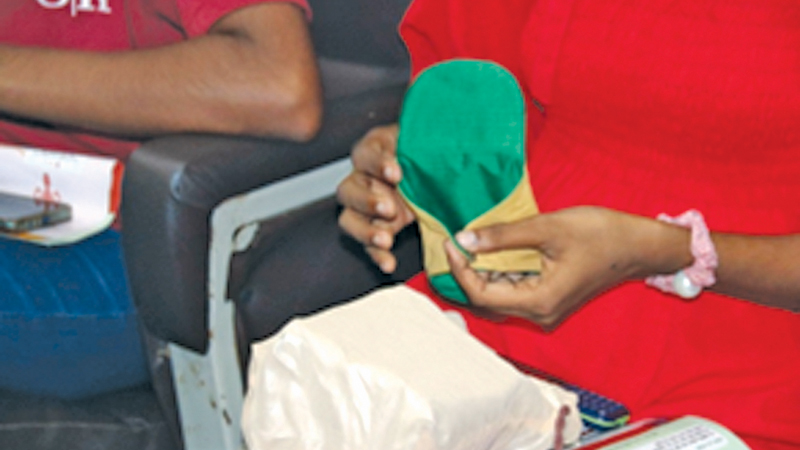As we celebrate World Environment Day (June 5), it is vital to recognise the interconnectedness of environmental sustainability and public health. One often overlooked aspect of this relationship is menstrual health, which is deeply affected by climate change. Addressing this link is essential not only for advancing gender equality but also for achieving a sustainable and resilient future.
Climate change has led to unpredictable weather patterns, rising temperatures, increased frequency and intensity of natural disasters and heat stress – all of which significantly impact water availability, sanitation, and hygiene facilities – all critical for menstrual health management. Women and girls, especially in vulnerable communities, face heightened risks due to these impacts. Those living below the poverty line are particularly vulnerable, as they lack access to basic resources and infrastructure needed to manage menstruation safely and hygienically.
Impoverished areas
Women and girls in impoverished areas often have limited access to clean water, safe sanitation, and menstrual products. With increasing impact of climate-induced disasters such as floods or droughts, these deficiencies become even more severe. Displaced women and girls may be forced to use unhygienic, unsafe alternatives, increasing their risk of infections. The loss of infrastructure and resources also leads to stigma and misinformation, making menstruation an even more shameful and taboo subject during crises. This cycle of vulnerability hampers their health, education, and economic participation.
 Recognising these challenges, UNFPA Sri Lanka is actively working to ensure access to sanitary facilities and menstrual products, especially in the aftermath of disasters. Providing safe, accessible sanitation is crucial for maintaining dignity and health during emergencies. Promoting environmentally-friendly menstrual products such as reusable cloth pads and biodegradable options can reduce environmental impact.
Recognising these challenges, UNFPA Sri Lanka is actively working to ensure access to sanitary facilities and menstrual products, especially in the aftermath of disasters. Providing safe, accessible sanitation is crucial for maintaining dignity and health during emergencies. Promoting environmentally-friendly menstrual products such as reusable cloth pads and biodegradable options can reduce environmental impact.
Traditional sanitary pads often contain materials that are not biodegradable and are expensive, making sustainable options a critical step towards environmental conservation and economic affordability. However, challenges remain in accessing these sustainable products and in the standardisation of reusable options which hinders consistent quality assurance and widespread usage.
Through a small grants initiative focusing on building social cohesion targeting youth, an eco-friendly smokeless sanitary pad incinerator was developed. Through the construction of Sanitary Pad Disposal Units at four schools in Nuwara Eliya, this intervention was able to address an urgent necessity faced by many adolescent girls and young women in the area where there is no proper mechanism to dispose sanitary napkins in an eco-friendly way. This initiative also envisages to minimise a critical issue of absenteeism among school girls during their monthly period.
Gender inequalities
Climate-induced disasters exacerbate existing gender inequalities. Women and girls tend to bear a disproportionate burden, often caring for family members and managing limited resources with little support. Their vulnerabilities are compounded by social, economic, and cultural barriers that restrict access to health services and information.
Addressing these challenges requires integrating menstrual health solutions into climate resilience and disaster response strategies. Promoting environmentally-sustainable menstrual products, coupled with education and awareness, can help dispel myths, reduce stigma, and empower women and girls.
UNFPA Sri Lanka remains committed to advocating for policies that incorporate menstrual health in disaster preparedness and climate adaptation efforts. Ensuring access to water, sanitation, and safe menstrual products is essential to building resilient communities that uphold the dignity and health of women and girls.
This World Environment Day, let us reinstate our commitment to safeguarding our planet, knowing that protecting our environment directly contributes to the health, dignity, and empowerment of women and girls in Sri Lanka and across the globe.









